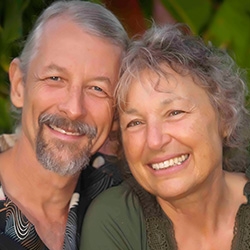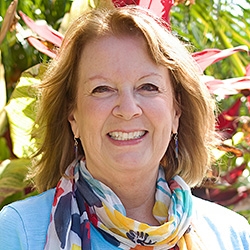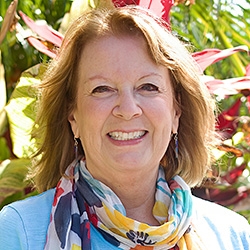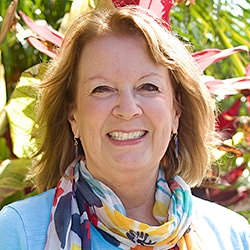
Search Results: money
-
How much money to pay? And how much money to ask for? The supply and demand logic basically say that we ask for the most that “the market can absorb” and pay “the least that we can get away with.” We can instead, we can engage in experiments that focus on connecting to and satisfying needs. We can also engage with our varying degrees of access to resources within the existing economy and consider how we want to make choices about resources, especially when we have access to power.
-
Our ability to reduce our reliance on money, or even exit the logic of money and exchange in our own thinking, is limited by the degree of trust we have that our needs will be met without it. The more we can enter into sufficient trust, the more we can enter into a web of sharing resources -- borne from a place of love. Read on for more.
-
Unless we change our collective ways on the planet, we will one day exceed the earth’s carrying capacity. We can only address the planet's very real limits of physical resources at the level of social organization. To operate empathically is to adjust our collective social order and patterns so that resources are more widely available and everyone's needs are met no matter what their output, income, power, circumstances, etc. Can we envision a future where the system is infused with this level of empathy, before it's too late?
-
-
-
-
CNVC Certified Trainer Alan Seid guides you to create a relationship with money that is clear, empowered and non-stressful. In which money plays a purposeful role in helping you create your ideal life, rather than unconsciously undermining your ability to achieve your dreams.
-
Jim and Jori Manske went from poverty to financial independence in 8 years, and they’re making the process they used available to you! Please join them in this inspiring 8-session program to transform your relationship with money, scarcity and abundance.
-
We can create processes that encourage resources (particularly money) to flow to where they are most needed. Engaging in "money piles" is one new way that can refocus conversations on real, practical problems to solve -- rather than ideological or abstract discussions about who "earned", "deserved", worked "harder", or merits more. It can tilt conversations based on transaction and obligation towards care and relationship. Read on for three examples that further illustrate how this new way of operating may even bring us closer to the type of world we all want to live in.
-
Trainer Tip: The exchange of resources, that is, exchanging money for an item or service, is enhanced and better appreciated when we are connected to its personal value rather than its cost.
-
Instead of allocating resources based on needs, we cling to having more money or privilege than others because its close enough substitute for our deeper longing. We may cling to narratives that seem to legitimize this inequality as something we deserved -- such as earning it; having more talent or ability; or needing more for company growth. This soothes our discomfort of having more than others. But these narratives still block us from genuinely getting in touch with the needs of life.
-
Trainer Tip: Persisting without demanding is the art of what Marshall Rosenberg fondly called "Dogging for our needs." We can learn to not give up on our needs and at the same time, refrain from demanding they be met.
-
Ronnie Hausheer, an NVC facilitator who volunteers her time for OccupyVoice.info joins NVC Academy co-founder Mark Schultz in a discussion of her work sharing empathy, NVC training and mediation with members of the Occupy Movement.
-
The more we can support an interdependent flow of resources and energy in society and the economy, the greater we can increase both natural abundance and the chances of averting extinction. Accumulation is a strategy born of mistrust. It’s an attempt to control the flow of life to guarantee that we will have enough for the future. Accumulation and exchange has blocked this interdependent flow. We can transform this blockage by uncoupling giving from receiving, and shedding excess as much as we can, so that energy and resources can travel further to those in need.
-
Our world trains us to think in terms of providing for everyone’s needs because they deserve it, earned it, or they possess the resources -- it's fair, socially just, supports equality or because people have rights. Instead, can we step outside this worldview to look at providing for everyone’s needs because those needs exist -- can we hold this basic reverence for life? Are we able to have a needs-based dialogue when such a reframe could alienate those who live in the worldview of earn/deserve?
-
By focusing on NVC process and practice without factoring in the interdependent, systemic dimension we unwittingly diminish the power of NVC. We reinforce the dominant paradigm, rather than challenging it -- making NVC one more tool for compliance. NVC principles can turn against its own purpose in cruel ways. NVC could also empower social change. We'll need our attention on this matter if we are to contribute to transforming the oppression we face and our collective march towards extinction.
-
We can't alone (nor with lone communities) transform the hidden structures of violence and domination. Dialogue alone isn't disruptive enough. We can easily be in dialogue with Trump supporters while the planet burns up, millions are still hungry, and we go extinct. NVC seriously risks reinforcing vast inequities and abuses if we're not radically engaging systemic constraints, and impacts of our choices that go beyond our immediate circle. Read on for ways to leverage NVC practices to expand true social change.
-
Even in the pandemic the line between what’s essential for people and what is “essential” for fueling the economy, often gets confused. Capitalist market economies actively undermine attending to needs for the many and for life as a whole. Economic recovery is a mirage leading to continued collective oppression. This article explores possible ways to bring us closer to attending to our actual needs — and caring for self, others and life.
-
The pandemic has unsettled deep patterns of consumption. There’s a fear, and with it comes the mindset that is the heart of rampant consumption; habits which are essential to the market economy’s “economic recovery”. High consumption is also the most direct cause of environmental degradation. What do we need in order to significantly reduce consumption for our greater resilience and freedom, and to increase our planetary and human sustainability?
-
Trainer Tip: Research shows long-term change comes when people have intrinsic desire to change. Extrinsic motivation is temporary and often only lasts while we're observed (eg. driving the speed limit when police are there). Notice where you're mostly intrinsically or extrinsically motivated. How does this feel? For instance, do you call mom because you want to connect with her? Or because you’re worried she’ll be hurt if you don’t?










